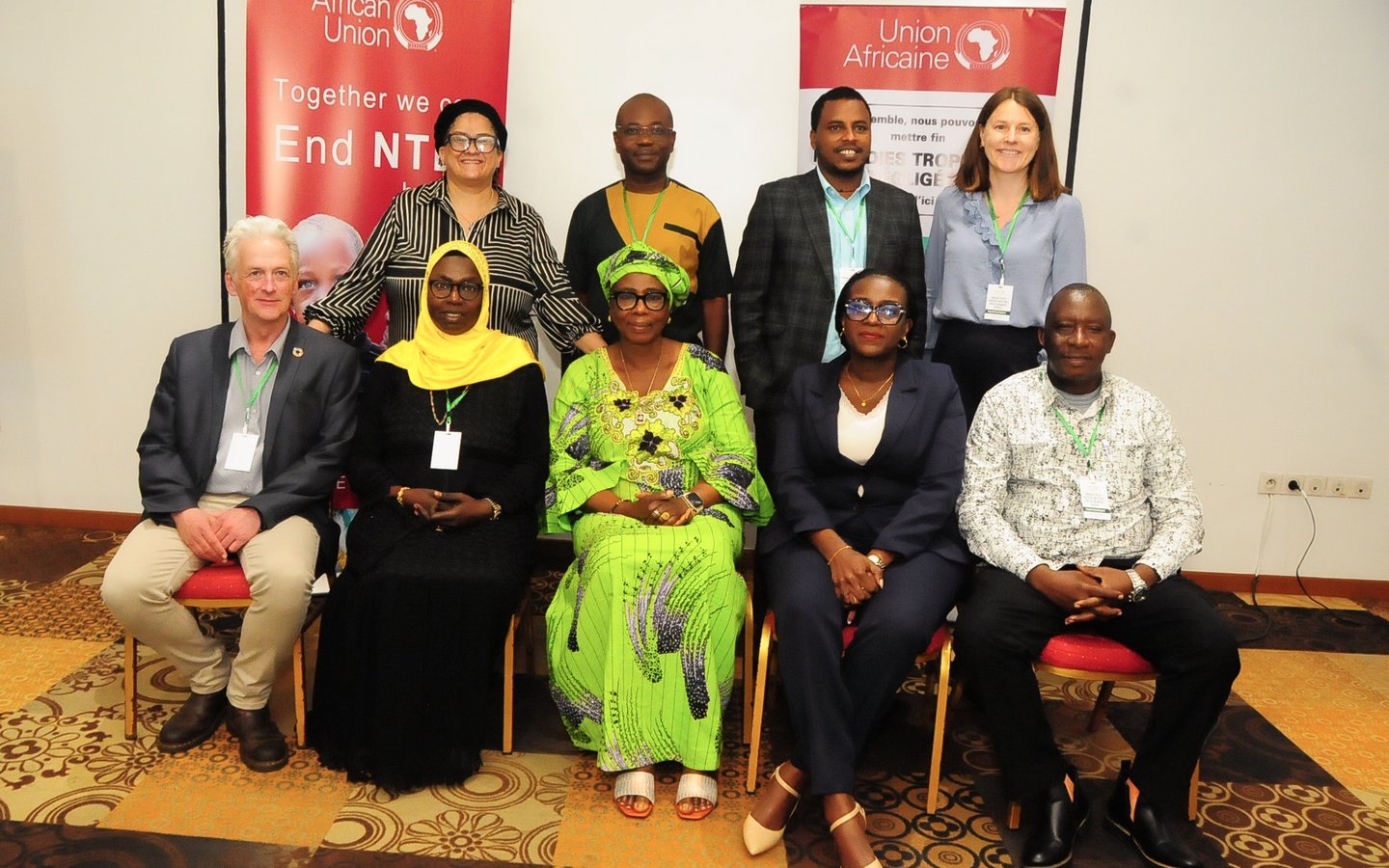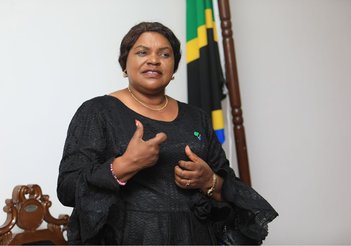May 2025
Innovative domestic resourcing solutions on the agenda as countries gather at AU NTD experts meeting in Benin last week.
Last week, members of the Uniting to Combat Neglected Tropical Diseases (NTDs) team attended the Annual NTD Experts Meeting for African Union Member States in Cotonou, Benin. This gathering brought together NTD experts, government representatives, and partners from across the continent to assess progress on the Continental Framework on NTDs and to chart a path forward.
Uniting’s Executive Director, Dr. Isatou Touray, delivered the opening remarks at the meeting, acknowledging the remarkable African leadership driving NTD elimination progress to date, with 23 countries across the continent already having achieved significant milestones. However, Dr. Touray also highlighted the urgent need to address the challenges posed by declining global health funding and increasing impact of climate change on NTD transmission.
To inspire strong collaboration at the event, Dr Touray’s emphasized the importance of domestic resource mobilization, innovative financing to sustain hard-won gains, the strong economic return on NTD investments and the opportunity to integrate climate resilience into health systems for long-term sustainability:
“It is imperative that Ministries of Health and Finance collaborate closely to identify, implement and sustain robust domestic funding strategies, reflecting true national ownership and demonstrating strong political commitment. Investing in NTD elimination is one of the most strategic decisions countries can make, especially in resource constrained environments.”
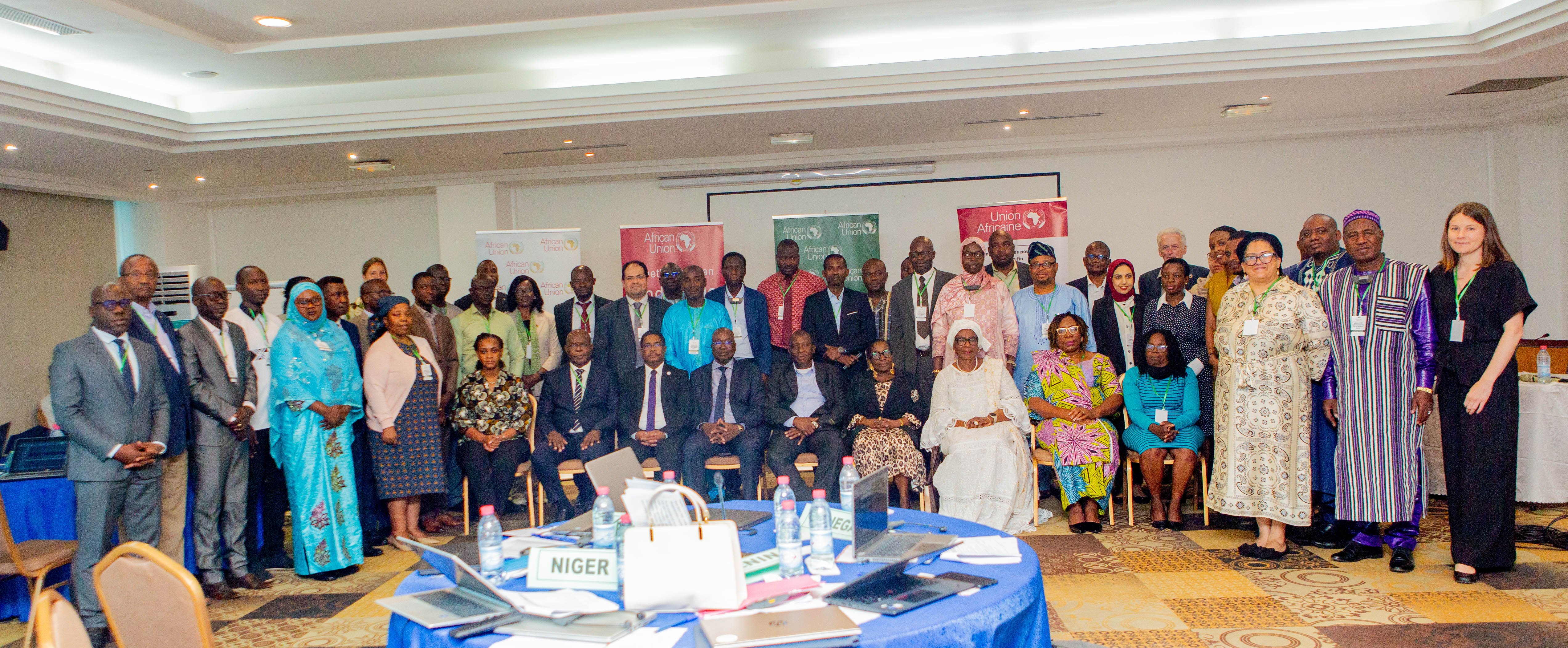
Photo: Group shot from the Annual NTD Experts Meeting for African Union Member States, in Cotonou.
One of the most inspiring sessions featured NTD programme managers sharing bold, country-led strategies to finance and sustain national NTD efforts. These stories reflected a growing and important shift toward domestic ownership, integration, and innovation. For example:
- Nigeria: Established dedicated budget lines for all 16 prioritised NTDs, increased national allocations, and formed an interstate advisory committee to drive cross-sector collaboration.
- Tanzania: Integrated NTDs into both public and private healthcare systems, embedding services into primary health care through decentralised planning and local government engagement.
- Ghana: Piloted a model with the National Health Insurance Authority and Social Welfare Department to provide free care for vulnerable populations affected by lymphatic filariasis—while also recognising lymphedema as a disability eligible for social support.
- Kenya: Embedded NTDs into its new Social Health Authority through income-based contributions and a costed NTD benefits package, ensuring equitable access to care via community health promoters.
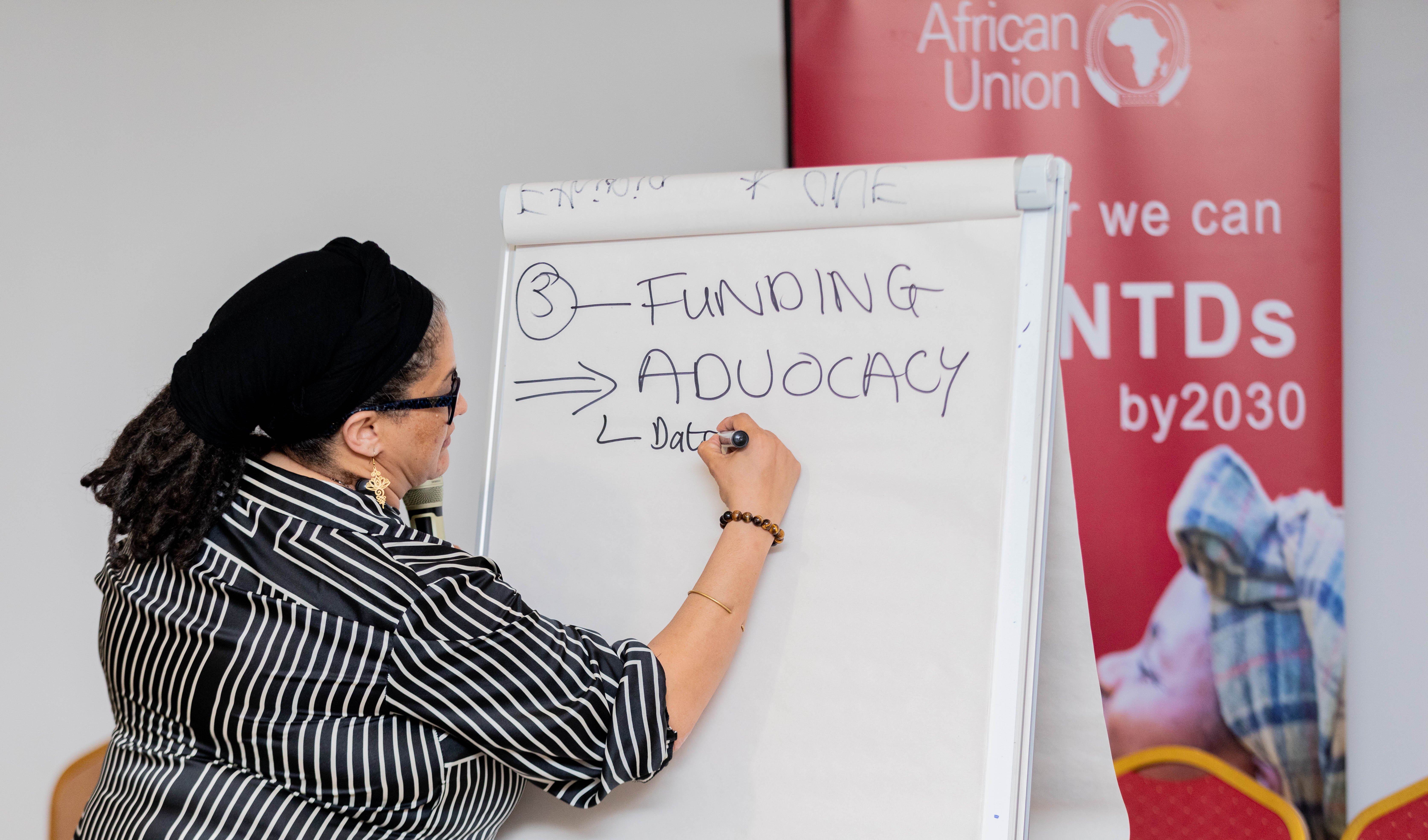
Photo: Uniting’s Senior Resource Mobilisation Advisor, Ruth Rensburg, presents to the group.
Uniting’s Senior Resource Mobilisation Advisor, Ruth Rensburg, also delivered a powerful presentation at the meeting, on how countries can sustain and scale NTD elimination through predictable, innovative, and domestically driven financing.
Key takeaways for sustaining progress through strategic financing, include:
- Country Ownership: Domestic resource mobilisation is essential for building resilient health systems and reducing reliance on external funding.
- Service Integration: Embedding NTDs into primary health care improves efficiency and supports progress toward Universal Health Coverage.
- And awareness raising of global financing opportunities:
- World Bank (IDA21): Including NTDs in national financing requests.
- Global Fund: Leveraging health systems that are strengthening grants.
- The African Development Bank (AfDB): Accessing regional integration and country-level funding windows.
- Regional Collaboration: For example, a six-country initiative led by AUDA-NEPAD, AfDB, and Uniting is demonstrating how NTD control contributes to economic growth.
- Climate Finance: Exploring mechanisms to address the increasing impact of climate change on NTDs.
The presentation concluded with a spotlight on the Kigali Declaration Commitment Tracker - a vital tool for advocates and policymakers. It enables real-time monitoring of donor and country commitments, and helps to identify funding gaps, ensure accountability, shape domestic financing strategies, and elevate the visibility of NTDs in national agendas.
Uniting was proud to celebrate countries that have endorsed the Kigali Declaration and entered their commitments into the tracker - Ethiopia, Ghana, Senegal, and Tanzania. These nations are leading by example, demonstrating transparency, leadership, and a shared commitment to ending NTDs.
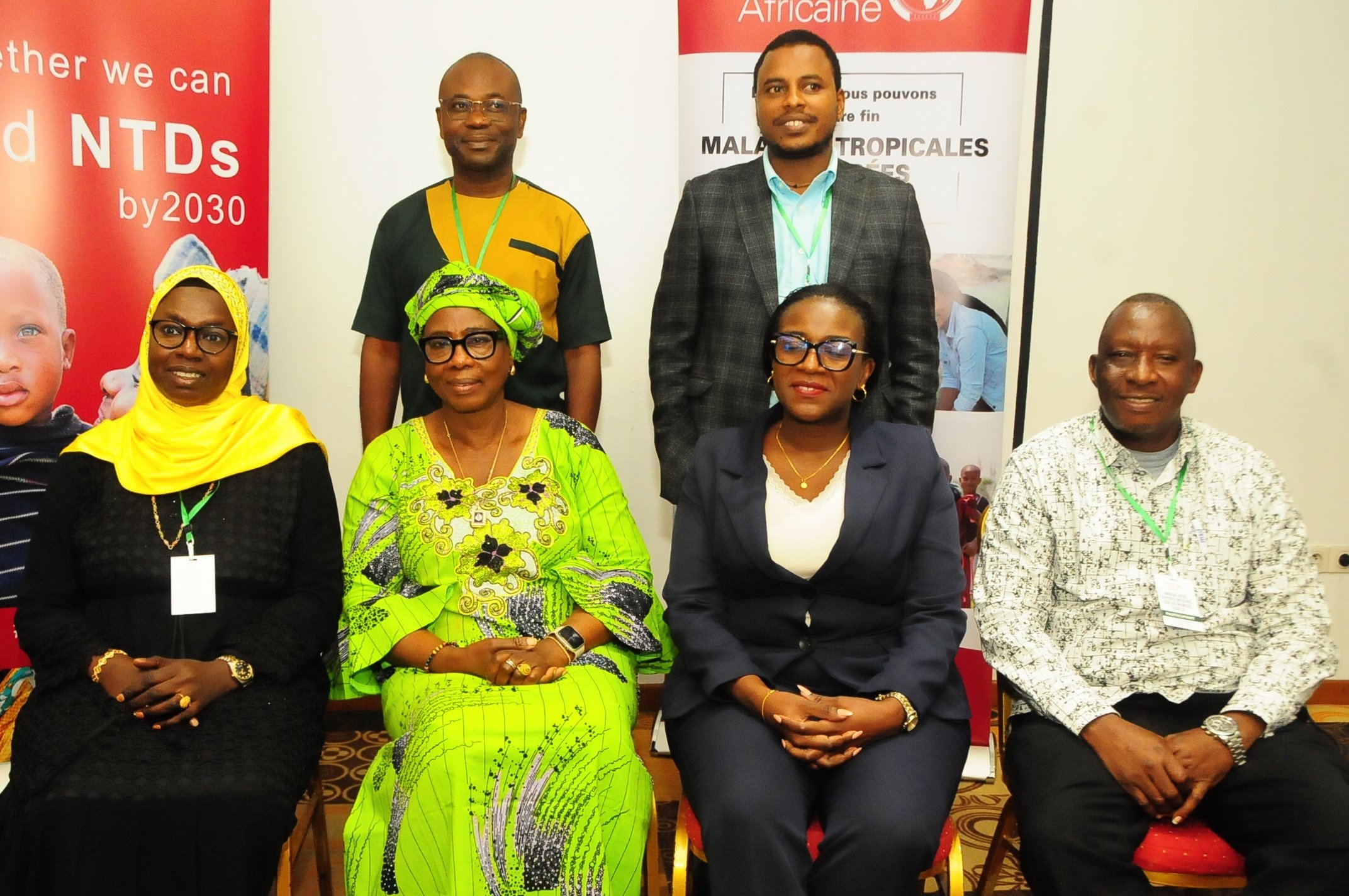
Photo: back left to right: Bright Alomatu, Ghana NTD Programme and Tesfahun Bishaw, from Ethiopia. Front left to right: Dr Ndéye M'backé KANE, from Senegal, Dr. Isatou Touray, Uniting to Combat NTDs, Dr. Irene Haule, Tanzania NTD Programme and Magetta Sufian, Tanzania NTD Programme.
Looking Ahead
As global funding becomes increasingly constrained, these discussions reaffirmed the importance of strategic partnerships, innovative financing, and strong political will. The road to 2030 will require bold action, but with the leadership and collaboration seen in Cotonou, there is every reason to be hopeful.
Together, we can Unite. Act. Eliminate. NTDs, and ensure that no one is left behind.
